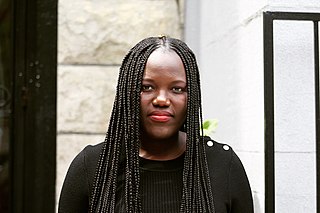 W
WAdji Bousso Dieng is a Senegalese Computer Scientist and Statistician working in the field of Artificial Intelligence. Her research bridges probabilistic graphical models and deep learning to discover meaningful structure from unlabelled data. She is currently an Artificial Intelligence Research Scientist at Google Brain in Mountain View, California. In 2021, she will start her tenure-track faculty position at Princeton University becoming the first Black female faculty member in the School of Engineering and Applied Science as well as the first Black faculty member ever in the Department of Computer Science. Dieng recently founded the non-profit “The Africa I Know” (TAIK) with the goal to inspire young Africans to pursue careers in STEM and AI by showcasing African role models, informing the general public about developments in STEM and AI by Africans, and educating the general public about the rich history of Africa.
 W
WPadmanabhan Anandan is the CEO of Wadhwani Institute for Artificial Intelligence, an independent not-for-profit Research institute focused on developing artificial intelligence based applications for social good. He was formerly vice president for research at Adobe Systems and prior to that a distinguished scientist and managing director of Microsoft Research. He was managing director at Microsoft Research India, which he founded in January 2005 in Bangalore. He joined Microsoft Research in Redmond, Washington in 1997, where he founded and built the Interactive Visual Media group. He was also previously a professor of Computer Science at Yale University.
 W
WJoscha Bach is a cognitive scientist focusing on cognitive architectures, models of mental representation, emotion, motivation and sociality.
 W
WSerafim Batzoglou is Chief Data Officer at Insitro. He was VP of computational genomics at Illumina, and professor of computer science at Stanford University between 2001 and 2016. His lab focused on computational genomics with special interest in developing algorithms, machine learning methods, and systems for the analysis of large scale genomic data. He has also been involved with the Human Genome Project and ENCODE.
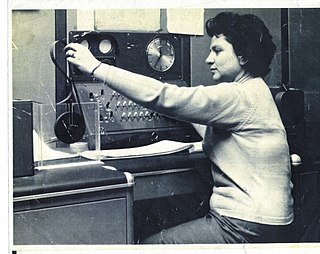 W
WCecilia Berdichevsky or Berdichevski was a pioneering Argentinian computer scientist and began her work in 1961 using the first Ferranti Mercury computer in that country.
 W
WMichael J. Black is an American-born computer scientist working in Tübingen, Germany. He is a founding director at the Max Planck Institute for Intelligent Systems where he leads the Perceiving Systems Department in research focused on computer vision, machine learning, and computer graphics. He is also a Distinguished Amazon Scholar and an Honorary Professor at the University of Tübingen.
 W
WRussell A. Brown, an American physician and computer scientist, is the inventor of the N-localizer technology that enables guidance of stereotactic surgery or radiosurgery using medical images that are obtained via computed tomography (CT), magnetic resonance imaging (MRI), or positron emission tomography (PET).
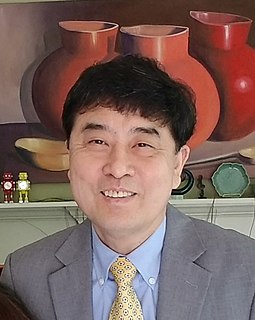 W
WChan-Jin Chung (정찬진) or popularly known as "CJ" Chung is a full professor of Computer Science at Lawrence Technological University(LTU) in Michigan, USA. He founded an international autonomous robotics competition called Robofest in the 1999–2000 academic year as well as numerous educational programs for youth by integrating STEM, arts, autonomous robotics, and computer science. He also served as the founding USA National Organizer of World Robot Olympiad (WRO) in 2014 and 2015. He also started the WISER conference in 2014. His research areas include evolutionary computation, cultural algorithms, intelligent systems & autonomous mobile robotics, software engineering, machine learning & deep learning, computer science education, and educational robotics.
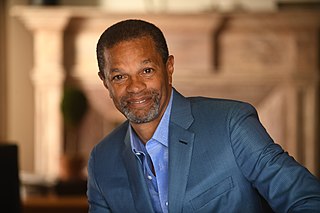 W
WKenton J. Clarke is an American entrepreneur and musician. He graduated from Norwalk State Technical College in 1972 and the University of New Haven in 1979. He is the founder of Computer Consulting Associates International and Omnikal.
 W
WMunther A. Dahleh is the William Coolidge Professor of Electrical Engineering and Computer Science and Director of the Massachusetts Institute of Technology (MIT) Institute for Data, Systems, and Society (IDSS).
 W
WErnesto Damiani is a professor of computer science at the University of Milan, where he leads the SEcure Service-oriented Architectures Research (SESAR) Lab. He is the Senior Director of the Artificial Intelligence and Intelligent Systems Institute at Khalifa University, in the UAE. He holds visiting positions at Tokyo Denki University, Université de Bourgogne. Damiani received an honorary doctorate from Institut National des Sciences Appliquées de Lyon, France (2017). His research spans security, Big Data and knowledge processing, where he has published over 400 peer-reviewed articles and books. He is a Senior Member of the IEEE and a Distinguished Scientist of ACM. Since 2018, he is the President of the Italian Inter-University Consortium for Informatics.
 W
WNazanin Daneshvar is an Iranian Internet entrepreneur who founded and is now running the discount site Takhfifan. She is unusual as a woman establishing a company in Iran and she has attracted some attention. In 2019 she became one of UNCTAD's "eTrade for Women Advocates" from the developing world.
 W
WSubrata Dasgupta is a bi-cultural multidisciplinary scholar, scientist, and writer. Born in Calcutta, he was educated in England, India, and Canada.
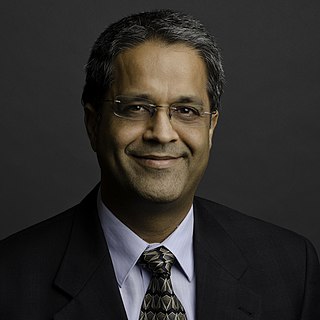 W
WInderjit S. Dhillon is the Gottesman Family Centennial Professor of Computer Science and Mathematics at the University of Texas at Austin, where he is also the Director of the ICES Center for Big Data Analytics. His main research interests are in machine learning, data analysis, parallel computing, network analysis, linear algebra and optimization.
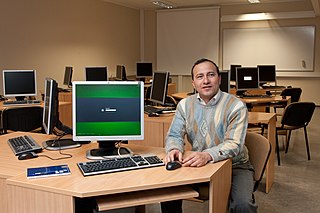 W
WMarlon Gerardo Dumas Menjivar is a Honduran computer scientist, and Professor of Software Engineering at the University of Tartu in Estonia, known for his contributions in the field of Business Process Management.
 W
WJosé Luis Moreira da Encarnação is a Portuguese computer scientist, Professor Emeritus at the Department of Computer Science of the Technische Universität Darmstadt in Germany and a senior technology and innovation advisor to governments, multinational companies, research institutions and organizations, and foundations. He is involved in the development of research agendas and innovation strategies for socio-economic development with a focus on emerging economies. He is also a member of the Topical Network Information and Communication Technology (ICT) and ICT-related activities of the German National Academy of Science and Engineering (acatech) and the German Berlin-Brandenburg Academy of Sciences and Humanities (BBAW). He is an elected member of the ACM SIGGRAPH Academy (USA).
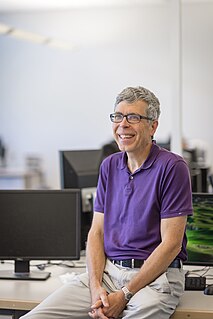 W
WMartin Ester is a Canadian-German Full Professor of Computing Science at Simon Fraser University. His research focuses on researcher data mining and machine learning.
 W
WThe Honorable Faustine Villanneau Chebou Kamdem Fotso born on June 12, 1989, is a computer scientist, environmentalist, and lawyer from Cameroon.
 W
WHoward Gobioff was a computer scientist. He graduated magna cum laude with a double major in computer science and mathematics from the University of Maryland, College Park. At Carnegie Mellon University, he worked on the network attached secure disks project, before he went on to earn his PhD in computer science. He died suddenly from lymphoma at the age of 36.
 W
WGary Gordon is a retired engineer, naval officer, associate professor at San Jose State University, Agilent Technologies Fellow, and co-founder of Cambotics, a company pioneering robotic studio camera dollies.
 W
WCraig Gotsman is the Dean of the Ying Wu College of Computing at the New Jersey Institute of Technology (NJIT), where he is a Distinguished Professor. Before NJIT, he was co-founder of the Cornell Tech campus in New York City and Founding Director of the Jacobs Technion-Cornell Institute there. Gotsman has also co-founded several technology startup companies and consulted to many large technology corporations.
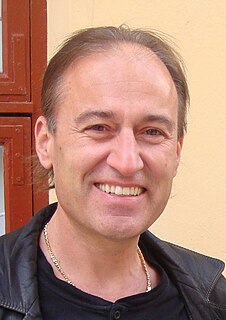 W
WMarkus Gross is a Professor of Computer science at the Swiss Federal Institute of Technology Zürich (ETH), head of its Computer Graphics Laboratory, and the director of Disney Research, Zurich. His research interests include physically based modeling, computer animation, immersive displays, and video technology. He has published more than 400 scientific papers on algorithms and methods in the field of computer graphics and computer vision, and holds more than 30 patents. He has graduated more than 50 PhD students so far.
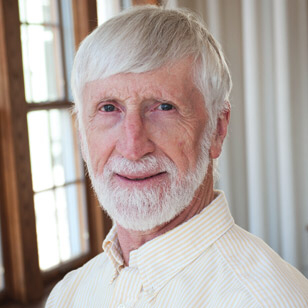 W
WAndrew J. Hanson is an American theoretical physicist and computer scientist. Hanson is best known in theoretical physics as the co-discoverer of the Eguchi-Hanson Metric, the first Gravitational instanton. This Einstein metric is asymptotically locally Euclidean and self-dual, closely parallel to the Yang-Mills instanton. He is also known as the co-author of Constrained Hamiltonian Systems and of Gravitation, Gauge Theories, and Differential Geometry, which attempted to bridge the gap between theoretical physicists and mathematicians at a time when concepts relevant to the two disciplines were rapidly unifying. His subsequent work in computer science focused on computer graphics and visualization of exotic mathematical objects, including widely used images of the Calabi-Yau quintic cross-sections used to represent the hidden dimensions of 10-dimensional string theory. He is the author of Visualizing Quaternions.
 W
WAlice Hartley (1937-2017) was an American computer scientist and business woman. Hartley worked on several dialects of Lisp, implementing multiple parts of Interlisp, maintaining Macintosh Common Lisp, and developing concepts in computer science and programming language design still in use today.
 W
WTara Hernandez is a professional software developer, and veteran open source contributor, who developed procedures and tools at several Silicon Valley companies. She was an early promoter of what came to be known as the Continuous Integration revolution. As shown in the documentary Code Rush, she was the manager of Netscape Navigator development at Netscape Communications Corporations, and worked on the preparation of the original Mozilla code for public release, which led to the development of the Firefox browser. She has also worked as a Release Team Manager at Blue Martini software, Senior Infrastructure Engineer and Team Lead at Pixar Animation Studios, Senior Engineering Manager at Lithium Technologies, Senior Director of Systems and Build Engineering at Linden Lab, and currently works as a Senior Engineering Manager at Google.
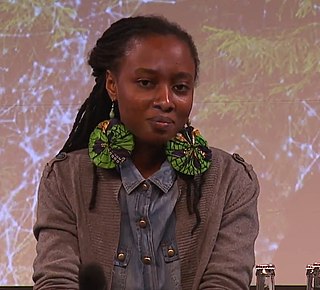 W
WClarisse Iribagiza is a computer scientist in Rwanda. She is the CEO and co-founder of the mobile technology company HeHe Limited and she is one of the UNCTAD's seven "eTrade for Women Advocates from the developing world". She was previously the winner of the East African entrepreneur reality TV show Inspire Africa Season 1.
 W
WKlaus Peter Jantke is a German mathematician, computer scientist, university teacher and academic researcher focusing on Artificial intelligence, Educational technology, Game studies and gamification.
 W
WSean Kandel is Trifacta's Chief Technical Officer and Co-founder, along with Joseph M. Hellerstein and Jeffrey Heer. He is known for the development of new tools for data transformation and discovery and is the co-developed of Data Wrangler, an interactive tool for data cleaning and transformation. He previously worked as a data analyst at Citadel Investment Group.
 W
WJason Kingdon is a mathematician, computer scientist and entrepreneur. He is currently CEO and Chairman of Blue Prism and co-founder of several AI companies. He was co-founder of UCL’s Intelligent Systems Lab and introduced the use of a neural network in live financial forecasting. He was also co-founder and CEO of Searchspace, a company that pioneered the application of AI to detect money laundering and detect insider dealing at banks and stock exchanges. In 2008, Kingdon joined Blue Prism as Executive Chairman. The company has been credited with creating the Robotic Process Automation market. Gartner has predicted that over 85% of all companies will be using RPA by 2022. Kingdon is also an EY Entreprenuer of the Year, author and editor of AI books, patents, and papers.
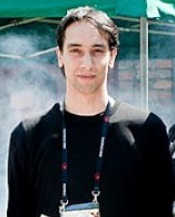 W
WBenjamin Kunz Mejri is a German IT security specialist and penetration tester. His areas of research include vulnerabilities in computer systems, bug bounties, the security of e-payment payment services and privacy protection. Mejri is known for uncovering new zero-day vulnerabilities and making them transparent to the public.
 W
WCharles Lee is a computer scientist, best known as the creator of Litecoin. He serves as the managing director of the Litecoin Foundation. As of July 2013, he also worked for Coinbase.
 W
WDavid J. Malan is an American computer scientist and professor. Malan is the Gordon McKay Professor of the practice of Computer Science at Harvard University and is best known for teaching Computer Science 50 which is the largest course at Harvard and the largest Massive Open Online Course (MOOC) at edX, with lectures being viewed by over a million people on the edX platform up to 2017.
 W
WDeepankar (Deep) Medhi is an Indo-American computer scientist and inventor. He is on leave as Curators' Distinguished Professor in the Department of Computer Science and Electrical Engineering at the University of Missouri–Kansas City, USA. He is a fellow of IEEE.
 W
WMelba Roy Mouton (1929-1990) was an American mathematician who served as Assistant Chief of Research Programs at NASA's Trajectory and Geodynamics Division in the 1960s and headed a group of NASA mathematicians called "computers". She served as Head Mathematician for Echo Satellites 1 and 2 before becoming Head Computer Programmer and then Program Production Section Chief at Goddard Space Flight Center.
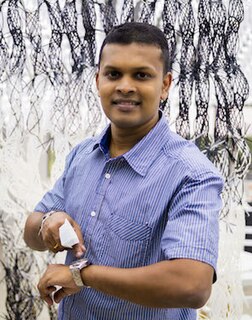 W
WSuranga Nanayakkara is a Sri Lankan born computer scientist and Inventor. As of 2016, he was the head of Augmented Human Lab and associate professor at Auckland Bioengineering Institute, University of Auckland. Before moving to Auckland, he was an assistant professor at Singapore University of Technology and Design. He is best known for his work on FingerReader/EyeRing and Haptic Chair. His research interests include Wearable Computing, Assistive Technology, Ubiquitous computing, AI, Collective intelligence and Robotics. MIT Technology Review honored Nanayakkara as one of the Innovators Under 35 for Asia Pacific Region 2014.
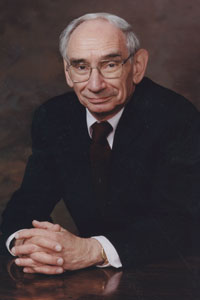 W
WAnthony "Tony" Gervin Oettinger is a linguist and computer scientist best known for his work on information resources policy. Oettinger coined the term “compunications” in the late 1970s to describe the combination of computer and telecommunications technologies that would take place as digital technologies replaced analog forms. In 1973 he co-founded, with John LeGates, the Program on Information Resources Policy at Harvard University. He served as a consultant to the President’s Foreign Intelligence Advisory Board and the National Security Council and NASA’s Apollo moon-landing program. From 1966 to 1968 he was president of the Association for Computing Machinery (ACM). He was recognized for his work in the intelligence community with the naming of the Anthony G. Oettinger School of Science and Technology Intelligence of the National Intelligence University. He is Gordon McKay Professor of Applied Mathematics and Professor of Information Resources Policy, Emeritus, at Harvard.
 W
WArlindo Manuel Limede de Oliveira, born in Negage, Angola, is a Portuguese academic, researcher and writer. He is author of more than 150 scientific articles and papers in conferences and of three books: The Digital Mind, published by MIT Press and IST Press, Computer Architecture, published by World Scientific and by IST Press and Inteligência Artificial, published by Fundação Francisco Manuel dos Santos.
 W
WM. Tamer Özsu is a Turkish Canadian computer scientist working in the area of distributed and parallel data management. He is a University Professor in the David R. Cheriton School of Computer Science at the University of Waterloo.
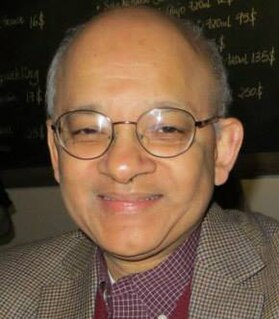 W
WPrakash Panangaden is an American/Canadian computer scientist noted for his research in programming languages, concurrency theory, Markov processes and duality theory. Earlier he worked on quantum field theory in curved space-time and radiation from black holes. He is the founding Chair of the ACM Special Interest Group on Logic and Computation.
 W
WTheodosios Pavlidis is a computer scientist and Distinguished Professor Emeritus of Computer Science at the State University of New York, Stony Brook.
 W
WPietro Perona is the Allan E. Puckett Professor of Electrical Engineering and Computation and Neural Systems at the California Institute of Technology and director of the National Science Foundation Engineering Research Center in Neuromorphic Systems Engineering. He is known for his research in computer vision and is the director of the Caltech Computational Vision Group.
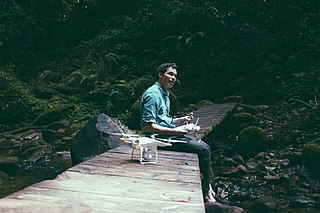 W
WPatrick Piemonte is an American inventor, computer scientist and user interface designer best known for his contributions to the iPhone and iPad at Apple, for which he has received over 55 patents.
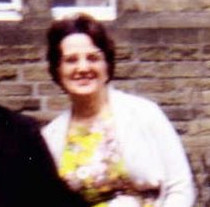 W
WCicely Mary Williams 29 October 1920 – 20 June 1995 was a British software engineer who worked with Alan Turing on the Manchester Mark 1 computer.
 W
WMichael P. Pound is a researcher at the University of Nottingham. He is known for his work in the areas of bioimage analysis, computer vision, image recognition, computer security, and for his appearances on the video series Computerphile.
 W
WJürgen Schmidhuber is a computer scientist most noted for his work in the field of artificial intelligence, deep learning and artificial neural networks. He is a co-director of the Dalle Molle Institute for Artificial Intelligence Research in Manno, in the district of Lugano, in Ticino in southern Switzerland. He is sometimes called the "father of (modern) AI" or, one time, the "father of deep learning."
 W
WReda Seireg(born December 20, 1949 in El Gharbia, Egypt) is a retired Egyptian Major General, a Technical Consultant for the Ministry of Irrigation, Reviewer in the ACM/IEEE transaction and a Computer Science Professor at King Khalid University. He has taught in several universities in Egypt, USA & Saudi Arabia. Prof. R. Seireg has supervised over 25 Masters and PhDs in the Universities of Cairo, Ain Shams, Port Said, Tanta and MTC. Also he has proposed over 1500 graduation projects and 200 research topics for Msc and PhD thesis in various computer engineering fields. Prof. R. Seireg published more than 100 papers in the fields of Fault Tolerant, Computer Architecture, Digital Design, Signal Processing, Radar Science, Real-time simulation, Virtual Reality and Agricultural Development. Lately, he has been working on a new mathematical operator called 'Seireg Operator' to optimize calculations.
 W
WAli Sunyaev is a professor for computer science and director of the Institute of Applied Informatics and Formal Description Methods at the Karlsruhe Institute of Technology (KIT).
 W
WWim Sweldens is a Belgian American business leader notable for innovations in communications and signal processing technology. He developed algorithms for compressing three dimensional images into billions of tiny triangular modules. At telecommunications firm Alcatel-Lucent in New Jersey, he led development of new cell tower technology called lightRadio which reduces the size of transmission equipment dramatically. The equipment uses only basic electrical power and can be placed indoors and linked to optical fiber cables; it enables mobile networks to operate with much less electricity, halving CO2 emissions and reducing the carbon footprint, and permitting cell phone service to reach more people over expanded geographic areas. The technology may mean the end of cell towers within ten years, according to several reports.
 W
WMilind Tambe is Gordon McKay Professor of Computer Science and Director of Center for Research on Computation and Society at Harvard University; he is also Director "AI for Social Good" at Google Research India. He is a fellow of AAAI, ACM. He is also recipient of the IJCAI John McCarthy Award, as well as ACM SIGART Autonomous Agents Research Award, AAAI Robert S. Engelmore Memorial Lecture Award, the Christopher Columbus Fellowship Foundation Homeland security award, the INFORMS Wagner prize for excellence in Operations Research practice and others. He has also received Distinguished Alumnus Award from Birla Institute of Technology and Science (BITS), Pilani, India.
 W
WTanel Tammet is an Estonian computer scientist, professor and software engineer. He was also one of the founding members of the Estonian Greens party and helped found the IT College in Tallinn.
 W
WKentaro Toyama is a computer scientist and international development researcher, who works on the relationship of technology and global development. He is the W. K. Kellogg Professor at the University of Michigan School of Information and author of Geek Heresy: Rescuing Social Change from the Cult of Technology.
 W
WT.H. Tse is a professor and researcher in program testing and debugging. He is ranked internationally as No. 2 among experts in test oracles and No. 2 among experts in metamorphic testing. The application areas of his research include object-oriented software, services computing, pervasive computing, concurrent systems, imaging software, and numerical programs. In addition, he creates graphic designs for non-government organizations.
 W
WBret Victor is an interface designer, computer scientist, and electrical engineer known for his talks on the future of technology. He currently works as a researcher at Dynamicland.
 W
WRené Vidal is a Chilean electrical engineer and computer scientist who is known for his research in machine learning, computer vision, medical image computing, robotics, and control theory. He is the Herschel L. Seder Professor of the Johns Hopkins Department of Biomedical Engineering, and the founding director of the Mathematical Institute for Data Science (MINDS).
 W
WLinnar Viik is an Estonian information technology scientist, entrepreneur and IT visionary.
 W
WHanna Wallach is a computational social scientist and senior principal researcher at Microsoft Research. Her work makes use of machine learning models to study the dynamics of social processes. She is interested in accountability, transparency and ethics in artificial intelligence.
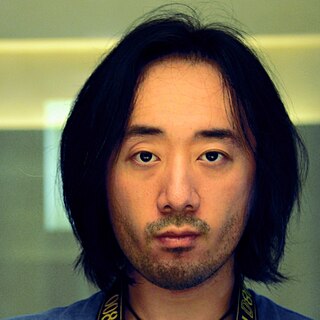 W
WGe Wang is a Chinese American professor, musician, computer scientist, designer, and author, known for inventing the ChucK audio programming language and for being the co-founder, chief technology officer (CTO), and chief creative officer (CCO) of Smule, a company making iPhone and iPad music apps. He also helped create the Princeton Laptop Orchestra and later founded its Stanford counterpart Stanford Laptop Orchestra, as well as the Stanford Mobile Phone Orchestra. Wang is the designer of the Ocarina and Magic Piano iPhone apps. Wang is currently an associate professor at Stanford University’s Center for Computer Research in Music and Acoustics (CCRMA). Wang is the author of Artful Design: Technology in Search of the Sublime , a book on design and technology, art and life, created entirely in the format of a photo comic book, published by Stanford University Press in 2018.
 W
WAlexander L. Wolf is a Computer Scientist known for his research in software engineering, distributed systems, and computer networking. He is credited, along with his many collaborators, with introducing the modern study of software architecture, content-based publish/subscribe messaging, content-based networking, automated process discovery, and the software deployment lifecycle. Wolf's 1985 Ph.D. dissertation developed language features for expressing a module's import/export specifications and the notion of multiple interfaces for a type, both of which are now common in modern computer programming languages.
 W
WHelen Chan Wolf is an Artificial Intelligence pioneer who worked on facial recognition technology at the SRI International. Wolf worked on the Shakey the robot, the world's first autonomous robot.
 W
WWojciech Zaremba is a co-founder of OpenAI (2016-now), where he leads the robotics team. His team is working on developing general purpose robots via new approaches to transfer learning and teaching robots complex behaviors. The mission of OpenAI is to build safe artificial intelligence (AI), and ensure that its benefits are as evenly distributed as possible.